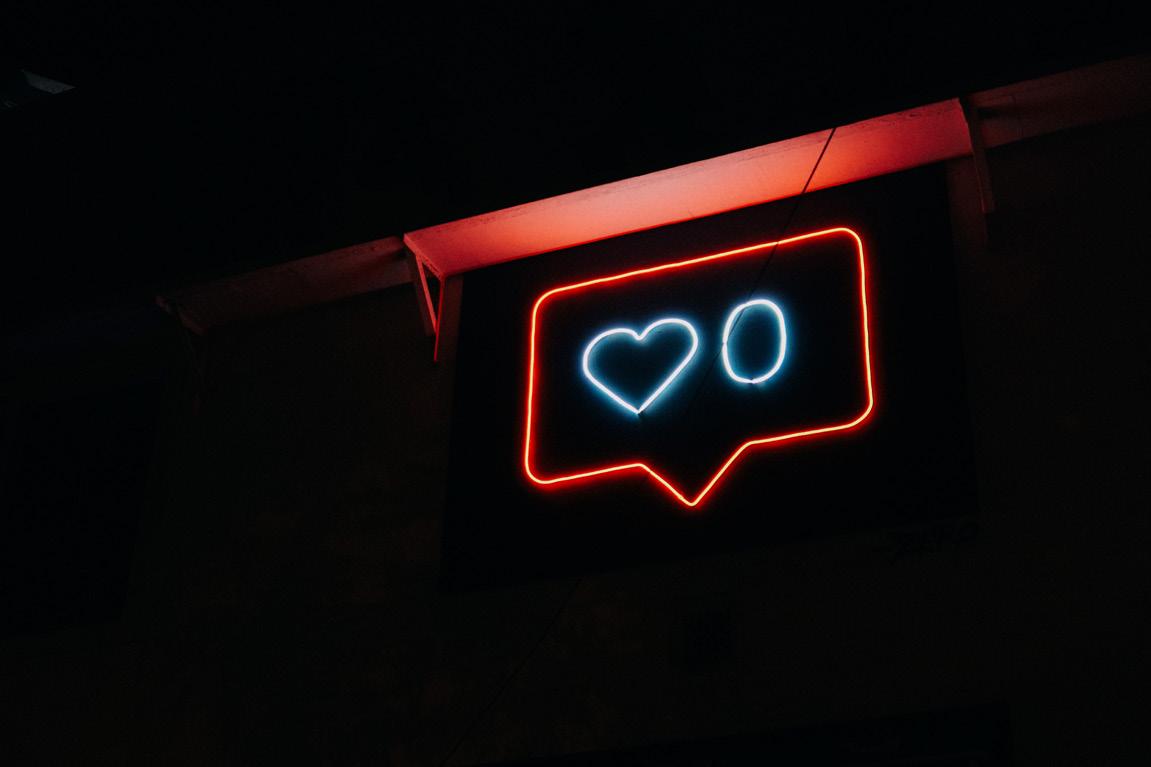
4 minute read
Our Social Dilemma
Like most of us over the past several months, I’ve been consuming more television, social media and digital content to help manage the stress and anxiety caused by the pandemic. In the past couple of weeks, at the urging of the owner and editor of this publication, I watched The Social Dilemma, a documentary current streaming on Netflix. After my initial feeling of guilt and frustration at hearing the conscious motivations of the developers of these platforms, it struck me that the corrosive nature of these services is less related to the technology itself and seems to be a reflection of our society and the vulnerability of human nature.
I do my very best to apply a mindful perspective to most things in life. As I sat back to reflect on how can I prevent being consumed by technologies that have become so entrenched in our social fabric and lifestyles over the past 15 years, I could not help but to challenge part of the premise posited by the perspectives in the film. Yes, there have been multiple studies completed showing evidence of the chemical changes in our brain that occur with increased use of social media. Advertisers have done this for ages. We experience a dopamine (the feel-good chemical!) rush when we check our feeds, anticipating someone liking or commenting on a post. And I wonder if this is not any different than the anticipation people felt sitting around a radio 100 years ago or a television set 50 years ago. Yes, we as humans want and need approval, it is part of our genetic makeup and the evolutionary trait that we benefit from feeling a part of a bigger community. It is our tribal nature, not something to shun. And, we cannot be totally dependent upon it for our self-worth and self-image.
As I watched it through the second time, the statistics also rang true. Increased suicides, experiences of depression and anxiety, particularly among our sons and daughters, have significantly increased over the past 10 years since the explosion of digital social engagement. As a practicing mental health professional, I see this truth on a daily basis. And yet, it felt like the causal links they were drawing in the movie were incomplete. Has simply being exposed to more points of comparison lead to our eroding mental health? I argue no. What I see as the most destructive aspect these platforms is how we treat each other within them. Yes, we are vulnerable to our posts, what we share, comparing ourselves to what others have or do, this can be deeply validated. However, it seems that our anxieties are rooted on these platforms the same as they are in our other concrete relationships, the fears of being judged, rejected, embarrassed or ignored. These are our existential human fears and they are extraordinarily amplified online. We get dragged, canceled, bullied, etc. The worst elements of our human behavior have become too normal in the comment section. Because we are simply typing, we have become disconnected from the negative consequences of our words. But they hurt the same to the recipient. We have evolved to be able to manage some criticism and critique within our worlds, and I don’t see that we have developed enough to not internalize hundreds or thousands of people laughing at us or ridiculing our lives, or do I think we should. No matter what the generation or technology, invalidation has and will always erode our mental health.
My last observation was in telling of the story of social media it seemed to intentionally or unconsciously overlook the incredible positives that have been realized through our global connections. Brilliant creatives, social movements, access to information and education, empowering connection. Black Lives Matter, Arab Spring, Fight for Our Lives are all driven by our passions for social justice and are/were coordinated through social media. These are consequences of our social dilemma. I live across the country from most of my family and closest friends, and primarily because of our online connections I still feel a part of their lives. I get to see my nieces progress with sports or my close friends’ travels or professional successes because they share. Is that not the dilemma that is posed? What connection and fulfillment are we willing to trade for our attention to a screen? And are we satisfied enough with our own lives to not judge ourselves in comparison to others?
To be honest, I don’t have the answer. I do know that when we apply mindful awareness to this, we can be more conscious about to what we give our attention, how these things contribute to how we feel, and how much time we are devote to the scroll. Mindfulness is about awareness and intention. Social media is not inherently harmful in my opinion, so long as we can be mindful of how we use it. Anything that can be addictive will be if we lose control of our intentions. This peek behind the curtain let us know their intentions, now what are yours? And with that, please follow me at @hurt.heal.grow (Just kidding).
Anthony Gonzales







